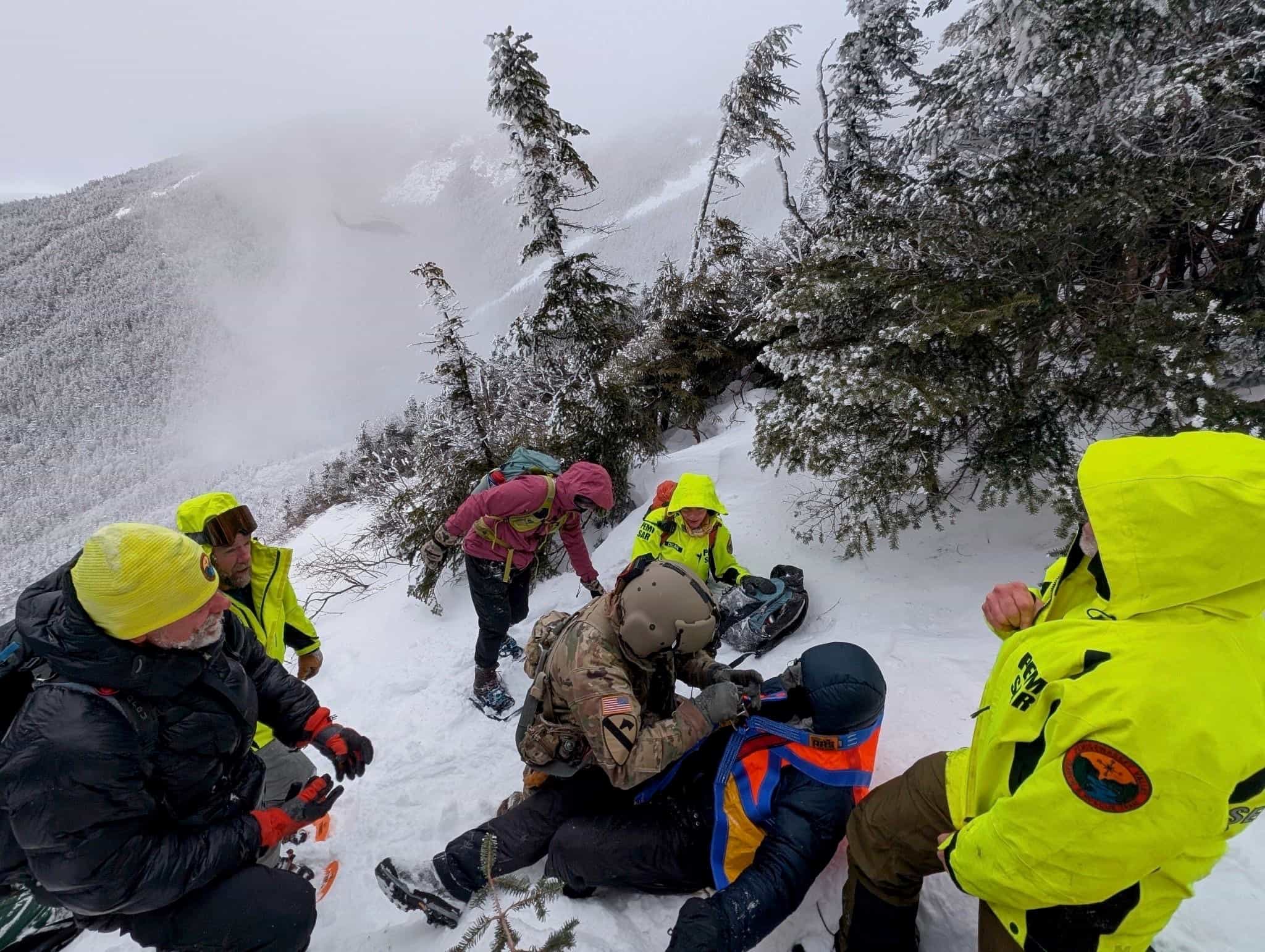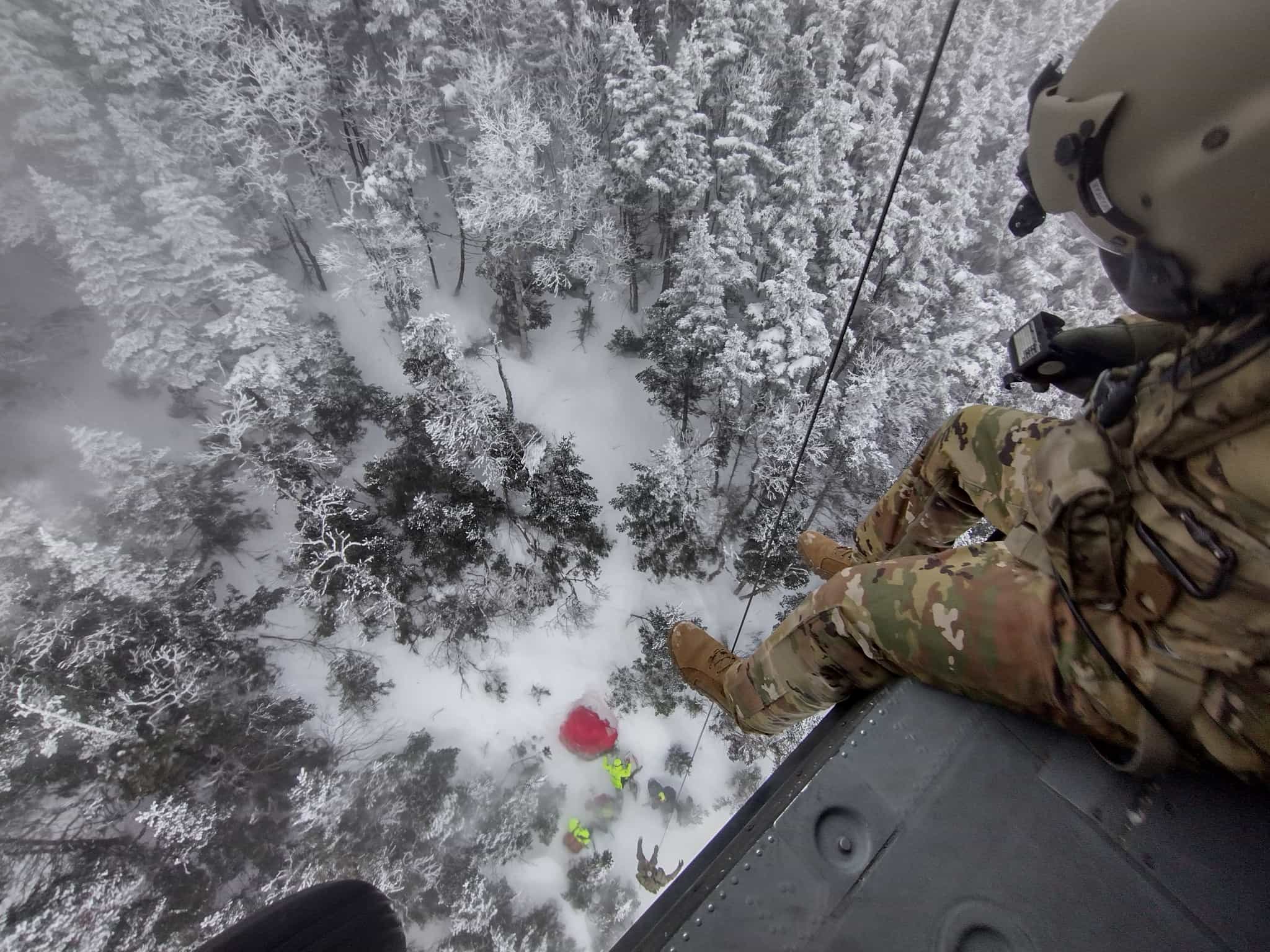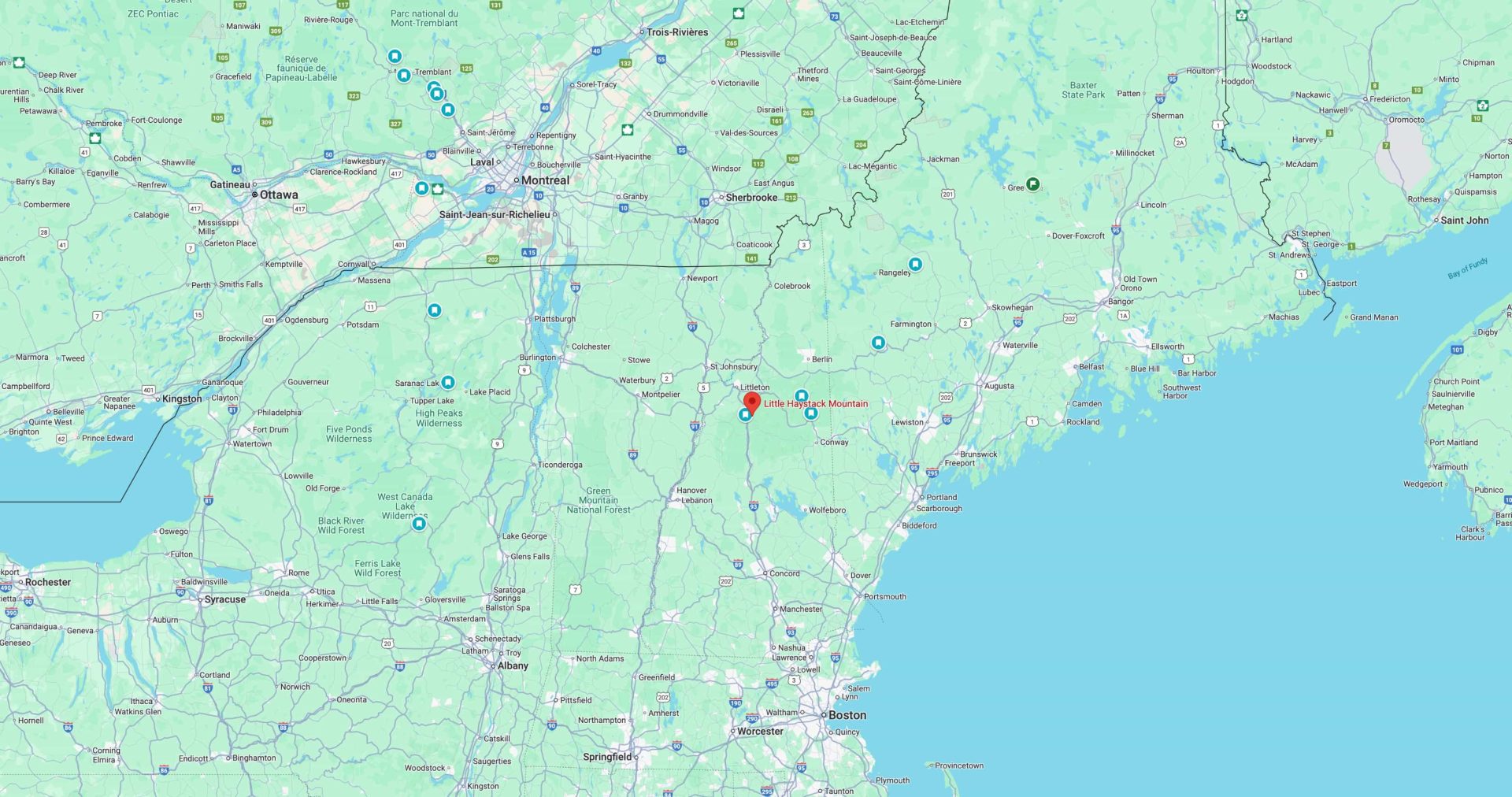
At 8:15 a.m. on Thursday, December 19, Conservation Officers were informed of a hiker in distress just below the summit of Little Haystack on Franconia Ridge in the White Mountains of New Hampshire. The solo hiker had contacted NH 911 and reported that his limbs were frozen, he was hypothermic, and he could no longer move through the several feet of snow. Temperatures were in the 20s, with winds blowing consistently above 30 miles an hour. Coordinates placed the hiker about 1,000 feet off the trail at 4,300 feet in elevation.
Conservation Officers and volunteers with the Pemi Valley Search and Rescue Team responded to the trail and, by 10:00 a.m., had started up the Falling Waters Trail. While most of New Hampshire saw some sun that day, the weather in Franconia Notch was cloudy with intermittent snow squalls. A call was made to the Army National Guard in hopes that an airlift could be performed if a favorable weather window presented itself. Unfortunately, when the Army National Guard arrived in Franconia Notch at around 10:45 a.m., the cloud cover only allowed them to get within a quarter of a mile of the hiker before turning back because of poor visibility. They were able to land at nearby Cannon Mountain Ski Area to wait for a safer opportunity.

It took over an hour to cover the 1,000 feet of bushwhacking from Falling Waters Trail to where the hiker was located, and by 1:00 p.m., the first ground rescuers reached the hiker. Vegetation was extremely thick, and the terrain was steep. Snowshoes were a must once rescuers left the trail. At this point, he was extremely hypothermic. He was placed in a Bothy Bag for shelter and given warm, dry clothing and warm fluids. The hiker stayed sheltered and was stabilized with rescuers, while others with a rescue litter were making a trail to them. At around 3:00 p.m., the clouds lifted enough for the Army National Guard to return to the area. By 3:15 p.m., Guard had lowered a medic and hoisted the hiker into the helicopter. As soon as the hiker was in the helicopter, the cloud cover returned to the area. They made their way immediately to Littleton Regional Healthcare, where they arrived before 3:30 p.m. This aerial rescue saved a multi-hour carry-out through rugged terrain and is a testament to how search and rescue works in New Hampshire, with several different groups working together for a common goal.

The severely hypothermic hiker was identified as 28-year-old Patrick Bittman of Portland, Maine. It was learned that Bittman had departed sometime the previous evening so that he could watch the sunrise from Mount Lafayette. Once near the summit of Little Haystack, he encountered deep, blowing snow and decided to come back down. He could not find the trail as he descended and ended up heading into the Dry Brook drainage when he eventually called for help.
Winter conditions have arrived in the White Mountains, and hikers are encouraged to be prepared for their trek by packing the ten essential items: a map, compass, warm clothing, extra food and water, headlamp, fire starter, first aid kit, whistle, rain/wind jackets and pants, and a knife. For additional information, please visit www.hikeSafe.com.
